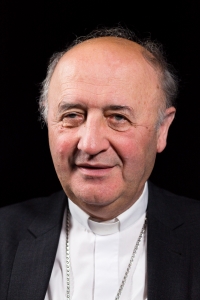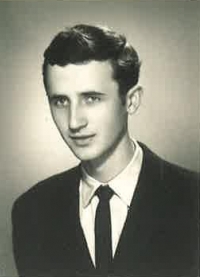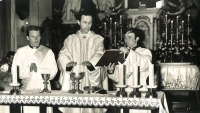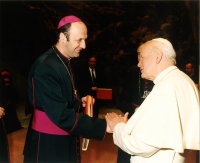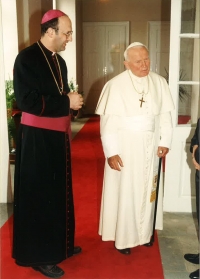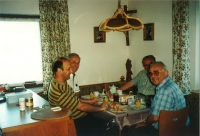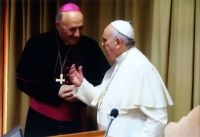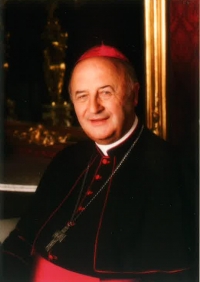We should not simply condemn

Download image
Jan Graubner was born on August 29, 1948 in Brno by Ludmila and Jan Graubner. He spent his childhood and adolescence in the South Moravian Region in Strážnice, where he also attended elementary school. From an early age he had longed to become a priest. Given that his parents were active Catholics, who, after 1948, the Communists nationalized their firm named Jan Graubner and his sons (later Šohaj), Jan was not easy to accept at Strážnice High School (equivalent to today’s grammar schools). He is said to have started on condition that the school manages to re-educate him by withdrawing from his faith and ceasing to attend church. However, this did not happen. After successfully passing the school-leaving examination, Jan first went to Brno for advice from a well-known priest. He reported on theology on appeal, but again encountered due to lacking working-class origins. So he decided to get it. He was employed in Gottwaldov (present-day Zlín) as a tool warehouse worker and after that he had no problem getting accepted the theological faculty. The year was 1968 and a new branch of the Cyril and Methodius Theological Faculty of Olomouc was opened in Litoměřice. During his studies, he met prominent spiritual figures, many of whom had experience of communist prisons and camps of the 1950s. After 1968, he still experienced absurdity of regime will while still studying. For example, a canon law teacher was forced to replace a cantor who taught catechesis and did not understand law. In the years of normalization, during his own priesthood, he met with the controversial bishop Josef Vrana, who cooperated with the state security and openly supported the collaborative Catholic movement Pacem in terris. The spiritual attitudes of Jan Graubner were strongly shaped by the illegal Fokoláre movement, whose ideological head in the then Czechoslovakia was a priest and a mucus from the 1950s Karel Pilík. During his time in Vizovice, Jan Graubner helped distribure church samizdat and managed to build a secret network of parishioners who participated in the reading and distribution of samizdat. After the Velvet Revolution in 1990, he received the episcopal consecration of František Vaňák and a year later, after Vaňák’s death, Pope John Paul II. appointed the archbishop of Olomouc.
